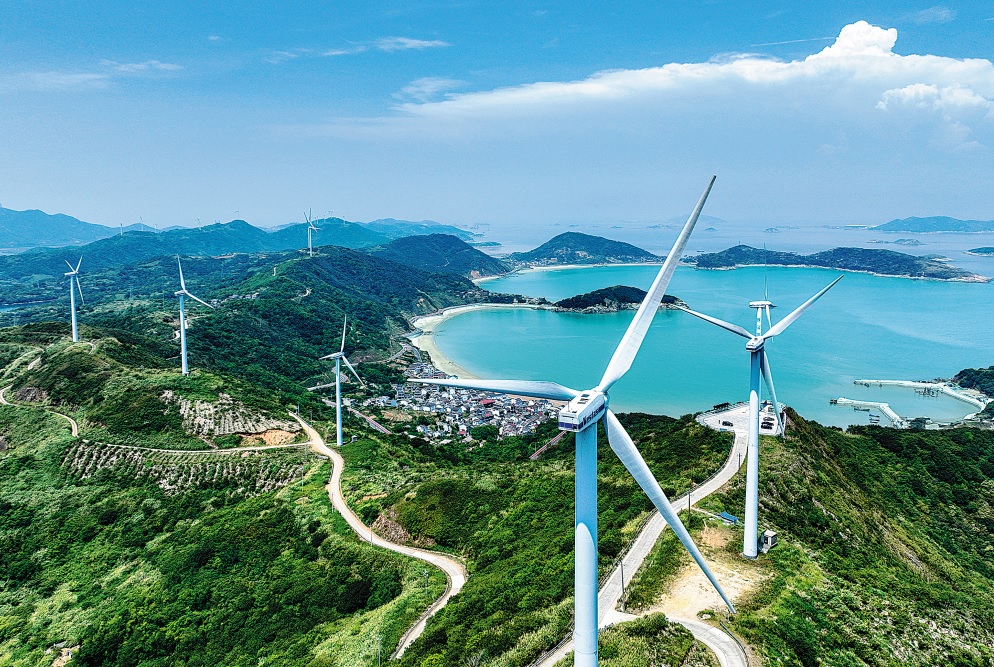China eyes BRI tie-ups in green, digital fields


In the next phase of the Belt and Road Initiative, China will accelerate the use of new collaborative forms in the areas of innovation, green development and digital economy with other participating countries and regions, said government officials on Friday.
As many of them are entering a new era of green development and innovation-led growth, collaborations with them on eco-friendly projects, healthcare and new technologies can deepen cooperation and produce win-win outcomes, officials said.
Xu Jianping, director of the Department of Regional Opening-up at the National Development and Reform Commission, China's top economic regulator, said that the nation will continuously deepen strategic coordination with other BRI countries in the coming years.
"China will deploy resources and make precise efforts to sign more high-quality cooperation deals for jointly developing the BRI," said Xu. "We will transform the concept into tangible results so as to gain more support from other countries."
The NDRC released six blue papers on Friday, which stated that China will extend BRI-anchored cooperation with countries in Southeast Asia, Africa, Latin America and the Caribbean region. The nation will also advance people-to-people connectivity, innovation activities, green development and international cooperation on traditional Chinese medicine or TCM with all other BRI participants in the years ahead.
For instance, China plans to expand imports from member countries of the Association of Southeast Asian Nations and enlarge the trade scale of intermediate products with ASEAN, build high-quality overseas economic and trade cooperation zones on both sides, and facilitate the integration of their industrial and supply chains.
"We will strengthen cooperation in green industries such as electric vehicles and photovoltaics, jointly build green industrial parks with ASEAN in selected places," said Xu.
He also stressed that China will continue to improve the integrated connectivity layout across land, sea, air and cyberspace with African countries under the BRI framework.
China will enhance cooperation on new types of infrastructure projects and support companies to participate in the construction of transportation and communication infrastructure projects in African countries. Such infrastructure will include optical cables, cross-border interconnectivity facilities, international submarine cables, next-generation mobile communication networks and data centers.
Cui Dandan, an official at the Department of International Cooperation at the Ministry of Ecology and Environment, said China will provide programs and training courses for South-South cooperation on climate change, and offer financial, technological and capacity support to partner countries to jointly achieve sustainable development goals.
South-South cooperation is a common endeavor of peoples and countries of the South, based on their common objectives and solidarity, and guided by, among others, the principles of respect for national sovereignty and ownership, free from any conditionalities, according to the United Nations' definition.
Implementation of more than half of a total of 369 cooperation initiatives unveiled at the third Belt and Road Forum for International Cooperation, which was held in Beijing in October, has started, according to information released by the NDRC on Thursday.
Foreign trade between China and other BRI economies surpassed $21 trillion from 2013 to October 2023, while China's direct investment in other BRI economies topped $270 billion, NDRC data showed.
After a decade of spurring growth, the BRI now boasts the participation of more than 150 countries and partners from various fields, bringing tangible benefits to businesses and people of participating countries, said Shu Jueting, spokeswoman of the Ministry of Commerce.

































